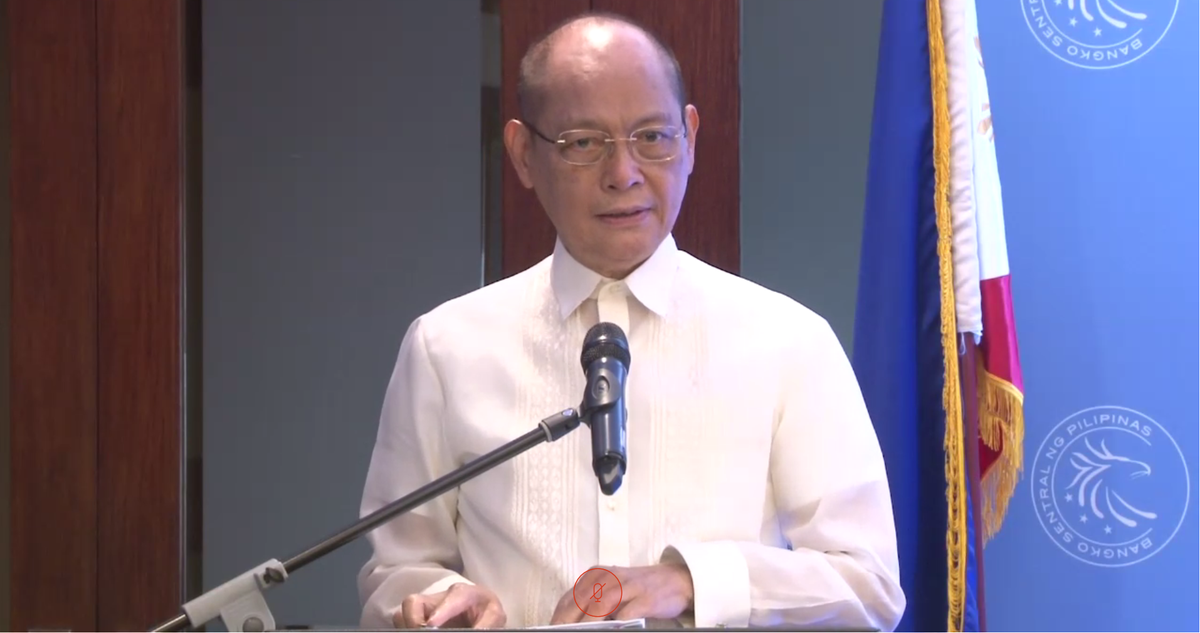BSP Gov. Diokno says January inflation uptick ‘transitory’

Inflation or the rate of increase in the prices of goods and services in January, at a 23-month high, exceeded the central bank’s expectations.
For Bangko Sentral ng Pilipinas (BSP) Governor Benjamin Diokno, however, such a development is only “transitory.
Inflation clocked in at 4.2% last month, its fourth straight month of acceleration and its fastest level in two years, amid faster increase in the prices of food commodities.
The main culprit is pork, which saw an inflation rate of 17.1%.
Last month, consumers saw meat prices, particularly pork, jack up as much as P400 per kilo in Metro Manila markets due to supply constraints as the African swine fever (ASF) decimated much of the hog population.
“The January 2021 inflation of 4.2% was higher than the BSP’s forecast range of 3.2 - 4.1%,” Diokno said in a message to reporters.
“Nonetheless, the latest outturn is consistent with the BSP’s prevailing assessment of a transitory uptick in inflation in H1 (first half) 2021, reflecting largely supply-side pressures related to the African Swine Fever (ASF), weather-related disturbances, higher global oil prices, along with positive base effects,” he added.
The BSP chief said the “projected uptrend in inflation is seen to be temporary.”
“The sources of near-term inflation pressures are supply-side shocks in nature that should not require a monetary policy response unless they lead to further second-round effects,” he said.
Sought for comment, Rizal Commercial Banking Corp. chief economist Michael Ricafort said the recent increase in inflation has largely been due to supply-side factors such as reduced supplies on storm damage and ASF on pork.
Ricafort said rising inflation “could be better addressed by non-monetary measures to increase local supplies especially pork, vegetables, other agricultural products.”
“This could be offset by non-monetary measures such the 60-day price control/ceiling on pork and chicken and increased importation of pork, chicken, and other meat products in the coming months,” the economist said.
To arrest rising prices, which the Department of Agriculture blamed on unscrupulous traders and wholesalers who took advantage of the ASF situation, President Rodrigo Duterte issued an executive order imposing a 60-day price cap on pork and chicken in the National Capital Region (NCR).
Under the EO, the price of kasim and pigue should not exceed P270 per kilo. The President also fixed the price ceiling for liempo and dressed chicken at P300 and P160, respectively.
Diokno, likewise, said that supply-side shocks are best addressed by non-monetary interventions that ease domestic supply constraints.
“Currently, direct measures are being pursued by the National Government to enhance the availability of affected commodities,” the BSP chief said.
Nevertheless, the central bank chief said that inflation is still seen to settle within the government’s 2% to 4% target range.
“The Monetary Board will consider recent price developments, particularly in global commodity markets, along with the fourth quarter 2020 GDP (gross domestic product) outturn in its assessment of the monetary policy stance in its meeting on 11 February 2020,” Diokno said.
“The BSP stands ready to deploy its full arsenal of instruments as needed in fulfillment of its mandate to maintain price and financial stability conducive to sustainable economic growth,” he added.—AOL, GMA News




